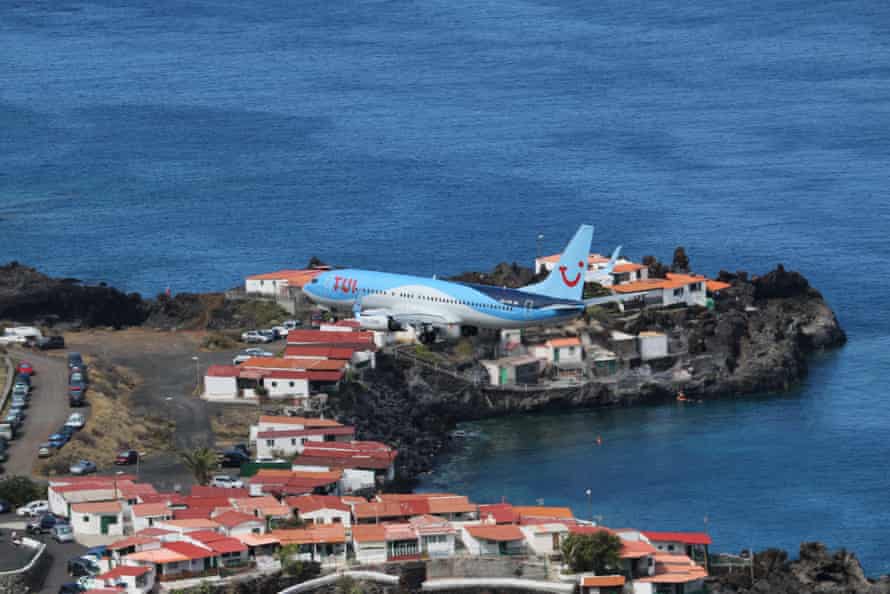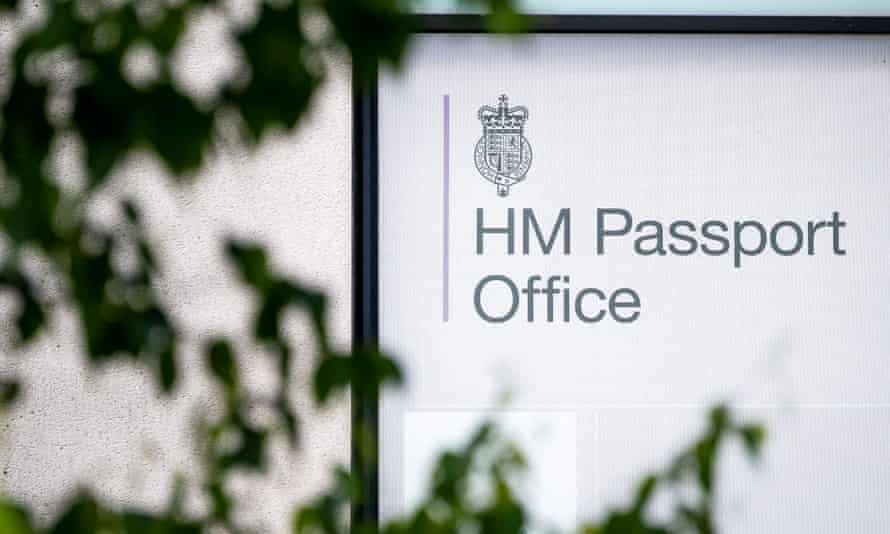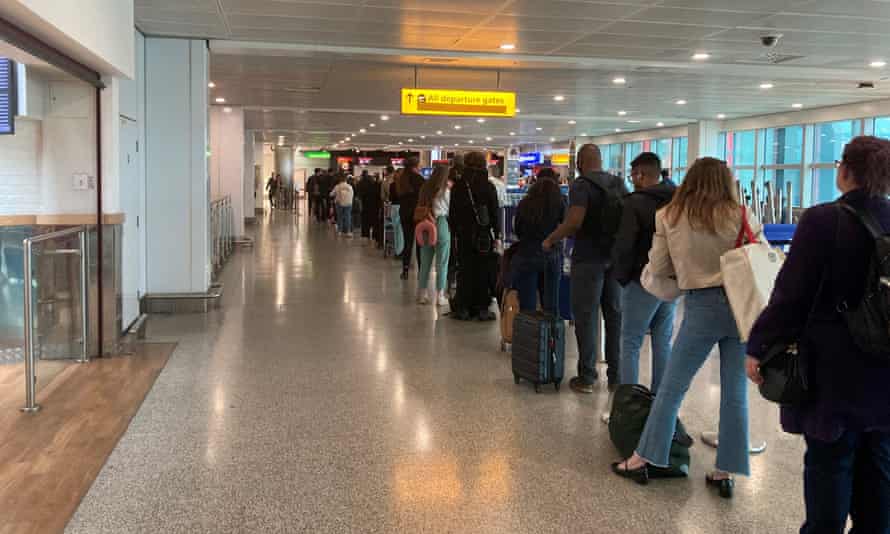It has been another week of chaos at UK airports, with hundreds of flights cancelled and holidaymakers facing long queues, with reports of waits of up to eight hours.
Pent-up demand for travel and staff shortages have combined to put pressure on airports and airlines.
This week’s “half-term travel chaos” headlines have followed on the heels of “Easter travel chaos” ones, and will have left many people with summer holidays booked – particularly those involving flights – worried their plans might be disrupted.
The consumer organisation Which? says it is increasingly hearing from people who are asking questions such as “can I cancel” and “what are my rights,” and in some cases are saying that with all the chaos, they don’t fancy going any more.
So what’s the prognosis for this summer? The Prospect union, which represents thousands of aviation staff, warned on Tuesday that “things could get worse this summer before they get better”. It says there are staff shortages across the industry, with a huge reliance on overtime to get by day to day.
Rory Boland, the editor of Which? Travel, says it is worth remembering that the vast majority of people are not having their flights cancelled or missing their plane because of the long queues. But he adds: “This disruption is going to continue into the summer. The staff shortages are almost across the sector.”
Paul Charles, the chief executive of the travel consultancy The PC Agency, doesn’t see things improving overnight but says: “I think that during June we will see a gradual improvement in hiring of workers … Consumers can be reassured that by the peak summer period in July, many of these issues will be resolved.”
However, he says that “the government needs to step up on approving security passes [for workers] faster”.
Of course, no one knows for sure what will happen. Certainly at the moment it is difficult to predict when things will calm down.
Yet to book your trip?
 Tui has cancelled scores of flights for June to ongoing delays at Manchester airport. Photograph: Marco Wolf/Alamy
Tui has cancelled scores of flights for June to ongoing delays at Manchester airport. Photograph: Marco Wolf/Alamy
“Make sure to book where there is free cancellation, or at least the ability to move the holiday or accommodation booking,” Boland says. “Lots of firms allow you free cancellation or the ability to move the holiday.”
Do you need to go in July or August? Quite a few people haven’t booked their summer holiday yet, perhaps because they have been waiting to see how things pan out.
In terms of holding on, Boland says: “I would definitely say that if you don’t have kids of school age [for example], don’t think about going until September. Save yourself the pain. It’s nicer anyway in Europe in September.” You will also get better prices and should have less likelihood of disruption, he adds.
Some people are changing their plans
A survey carried out last month found that 45% of British holidaymakers had changed their holiday plans this year in the face of reduced availability, higher prices, queues and ongoing travel restrictions. One in 10 of those polled said the queues at airports had led them to tweak their plans, according to the survey carried out by travel extras company Holiday Extras.
Travel light and travel early
Paul Charles says that if you have not yet sorted out your flights, try to book “as early as possible in the morning” – ideally departing between 6am and 8am – because you will beat many of the queues.
He also advises people to “really travel light – if you can avoid checking in luggage, that will make a massive difference”. Minimise hand luggage, too, if possible.
Boland makes the same point – he says that in addition to the issue of check-in queues, lots of bags are going missing. “If you can get away with cabin bags, do that.”
Think about passports
 There has been a surge in demand for passport applications, creating a huge backlog. Photograph: Matthew Horwood/Getty Images
There has been a surge in demand for passport applications, creating a huge backlog. Photograph: Matthew Horwood/Getty Images
There are two issues with passports that are causing problems. If you have a trip booked or are thinking about one, dig out everyone’s passports this weekend to check the dates.
Most people are probably aware that a backlog of passport applications and renewals has caused months of delays. The Passport Office was this week telling applicants to allow up to 10 weeks to receive their passport. If you have already applied, you can track your application.
The other issue is to do with passport validity and revolves around the date it was issued. Earlier this year, the Guardian told how holidaymakers have been caught up in confusion over Brexit-related rules that mean some people with up to 12 months left on their passport could be stopped from travelling to many EU countries.
The European Commission says two rules must be complied with at the point of entry. The passport must have been issued within the previous 10 years, and it must be valid for at least three months after the date you plan to leave the EU country you are visiting.
Get insurance
With all this chaos, it’s more important than ever that people take out travel insurance.
Boland says ideally you should take it out at the same time you book your trip. Don’t wait until a couple of days before you leave, as disruption can happen at any point from when you have booked, he adds.
Ceri McMillan at the website GoCompare says most policies will offer cover for delayed outbound or inbound journeys; however, the requirements for the length of the delay and what compensation is available may differ.
The better (typically more expensive) policies often include cover for missed departures – for example, you miss your flight because of something like a strike. However, the small print will vary, and it’s unclear if they would cover something like this week’s chaos.
As well as cover for medical care, cancellations, personal liability and lost or stolen baggage, most policies now have a level of cover for Covid that will pay for emergency care and repatriation, McMillan says.
You almost certainly won’t be able to claim because you no longer wish to travel and want to cancel your holiday.
It matters when the cancellation happens
 Passengers queue for flights at Heathrow airport. Photograph: Ben Smith/PA
Passengers queue for flights at Heathrow airport. Photograph: Ben Smith/PA
Your rights if a flight is cancelled depend to an extent on when you are given the bad news. When an airline gives more than 14 days’ notice that a flight is cancelled, it does not have to offer any compensation, but does have to offer a refund or a new flight.
If you had booked a return flight, it must refund you for both legs of your journey if that’s the option you take. You should get back the full cost of the tickets.
For flights cancelled within 14 days of when you are set to go, you get the same options, and there could be compensation due, too, if you opt for an alternative flight – how much depends on the distance you were going to be flying, as well as how much later the new flight takes off and arrives.
The compensation is set in law: it ranges from £110 for a short-haul flight of under 1,500km (937 miles) which replaces a flight cancelled between seven and 14 days in advance and arrives less than two hours later than the original booking, to £520, payable on a long-haul flight of more than 3,500km cancelled less than seven days before travel where the new flight arrives more than four hours later than the original booking. The departure time is also a factor.
If your flight is cancelled when you are at the airport and you are rebooked on a later trip, the airline is obliged to give you what the law describes as “a reasonable amount of food and drink”, a means for you to communicate, accommodation if you are re-routed the next day, and transport to and from the accommodation (or your home).
Meanwhile, when a flight is delayed by more than three hours, passengers are entitled to compensation of between £220 and £520, unless the cause was “extraordinary circumstances”. This is not clearly defined but could include bad weather and terrorism. Any delays under three hours do not warrant compensation.
Sometimes airlines won’t pay out. If this happens, some Guardian readers have said a complaint to the Civil Aviation Authority works.









